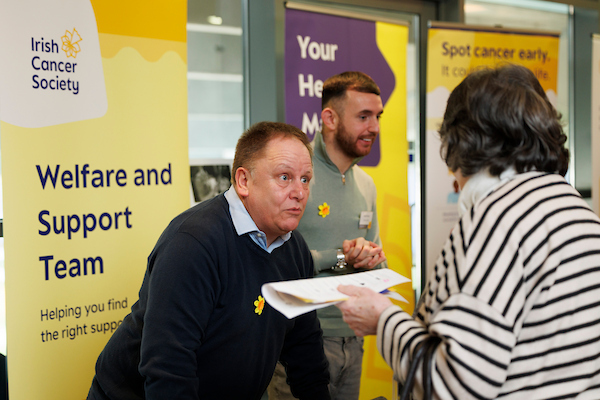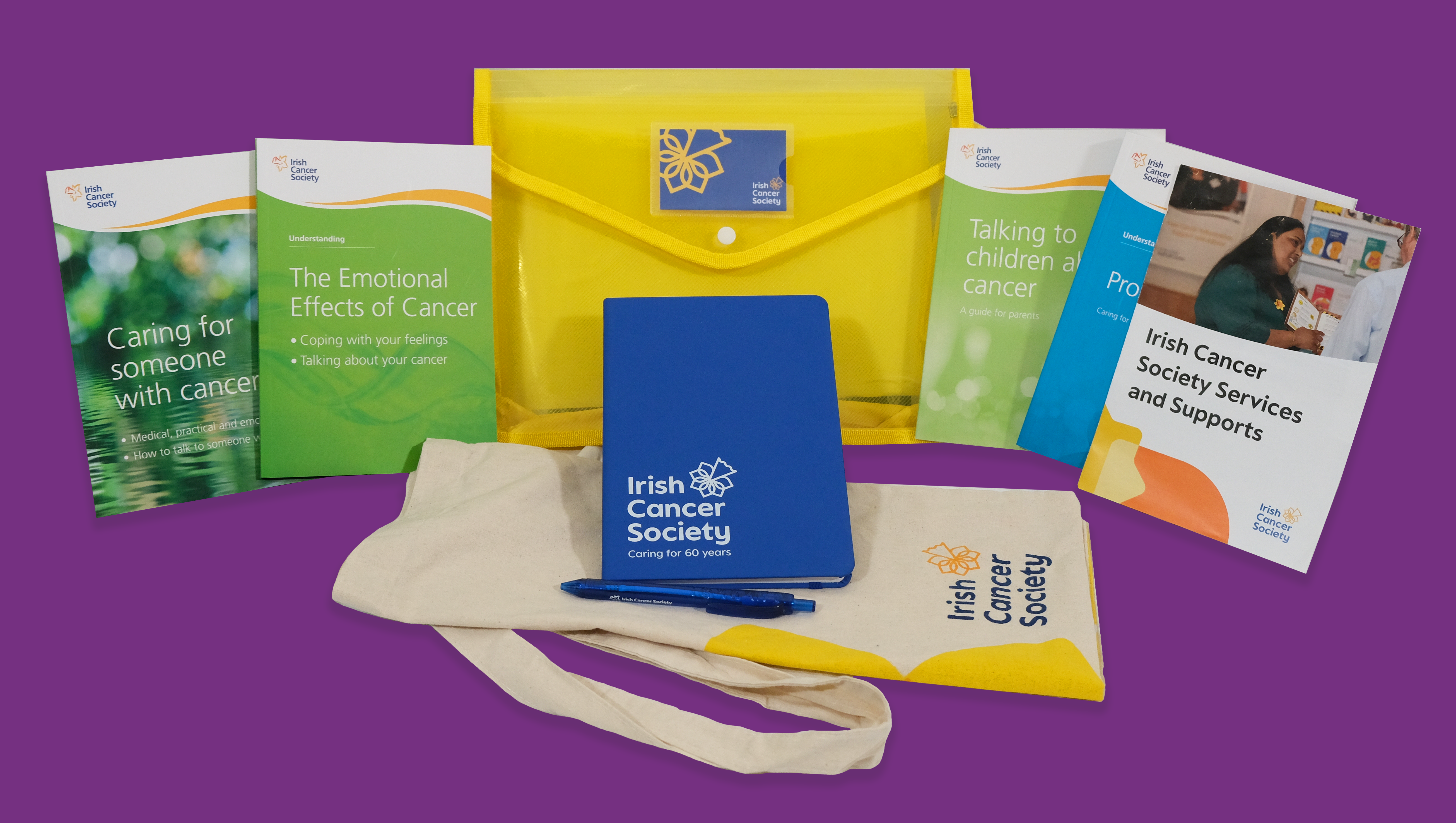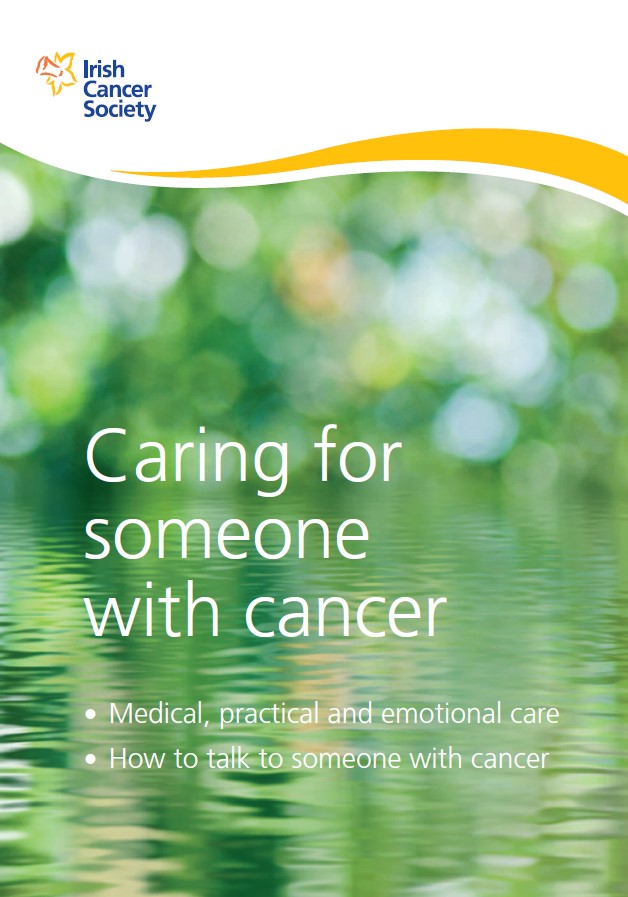Taking care of yourself
Even if you are happy to be a carer, it can be a very hard job. It’s not unusual for caregivers to become tired and stressed, especially if they put their own needs second.
Get organised
Life can suddenly become very busy when a loved one becomes sick.
- Make lists so you know what needs to be done and can ask other people to take on certain jobs.
- Have regular family meetings so that everyone knows what’s happening and is working together. You could also ask the medical social worker at the hospital for advice about family meetings.
Know your limits and look after yourself
Don’t feel you have to do everything on your own – it's ok to ask for help.
- Make sure the work of caring is shared out fairly.
- Even if you feel you are coping well, it’s still a good idea to share out the work from the start, so that you don’t get worn out and you get to have a little time to yourself.
- If you don’t have other people to help, talk to your GP or the medical social worker at the hospital to see if any help is available.
- Be kind to yourself. If you have a tough day, remind yourself of this. Being a carer isn’t always easy – you're doing the best you can.
Make time for yourself - at least once a week. Let someone help when they ask.
When someone you care about is unwell, all your attention may be on them. But it’s important to remember to look after your own health and wellbeing, so that you can cope with the demands of being a carer.
Self-care means looking after yourself – physically and emotionally. It’s about being kind to yourself, knowing that you are important and doing things that make you feel good and positive – without feeling guilty!
Staying healthy
Eat a variety of foods including plenty of fruit and vegetables.
Take naps if you’re tired or ask someone to give you a break at night if you need it.
A 30-minute walk can boost your energy, lift your mood, keep you fit and give you a break.
It is best to avoid alcohol and drugs as they can lead to poor-quality sleep, anxiety and general unwellness the next day.
If you are on medication for anxiety or sleeping difficulties, stick to the prescribed dose. Talk to your GP if you feel these are not working for you. Contact your local cancer support centre for courses on relaxation.
Try healthy ways such as exercising, sharing your feelings or complementary therapies like mindfulness or meditation.
If you are very busy and don't have much chance to leave the house, you may be tempted to ignore your own health problems. But if you feel unwell or feel you're not coping it’s important to go to the GP and get things sorted sooner rather than later.
Be careful doing more physical work, like when you're lifting or moving the patient or equipment.
Watch out for warning signs
Watch out for your physical or mental health.
If you are feeling tired or unwell, not sleeping well, losing your appetite or if you are tearful or angry or finding it hard to cope, tell someone and get some support sooner rather than later. Talk to a friend or family member, or go to your GP.
Take time out
It’s important to take some time away from caring, even if it’s only for a few minutes. Try to do this from the start, even if you feel you are coping ok.
For example, if you can’t leave your loved one, you could ask a neighbour to come in for half an hour every day while you go for a walk or a cup of coffee. Or just take some time out to read or watch TV.
It’s also easy to become isolated from other people so try to meet up with friends or family regularly and carry on with your hobbies or interests if you can - for your own health.
You could keep a diary about how you are feeling, or maybe try to talk to someone.
It's important to have some support to turn to when you are tired and stressed. For more on this, see getting support. Try to plan outings and meetings that don't involve discussing your loved one. It's ok to need a break.
Care plans
If someone else will be caring for your loved one, it can help to have a written care plan. A care plan is a description of the type of care your loved one needs. This could include:
- What your loved one needs at different times of the day – for example, medications they need to take, changing dressings.
- What kind of food and drink they like, and anything they should avoid.
- What to do/who to call in an emergency, with contact details.
Having a written care plan makes it easier for the person doing the caring and can put your mind at rest if you feel nervous about handing care over to someone else.
Getting emotional support
Your GP
Talk to your GP if you need support or are finding it hard to cope. As well as caring for you, they can also refer you to services that will help to support you, such as occupational therapy, public/community health nursing and palliative care.
Medical social workers
Hospital-based medical social workers help patients and their families with any psychological, emotional, social or practical difficulties during their hospital stay.
They can help with issues related to caring for a dependent relative like stress, financial worries, anger and depression, loss and bereavement, addiction, isolation, loneliness and concerns around elder and child abuse or domestic violence.
They also give information and support to help you access other helpful services. For example, arranging home supports and nursing home care as well as supporting applications to other agencies and advocating on behalf of the patient and his/her family.
Cancer support services
There are lots of local cancer support services that provide a range of helpful services to carers, as well as to people with cancer. For more on this, see cancer support services.
Support groups
Support groups give you the chance to get a break from caring, and meet people in a similar situation. You can give each other support, share feelings, information and advice and learn from each other’s experiences.
There are general support groups for carers as well as support groups for specific types of cancer. You might also feel supported by being part of a general social or community group, such as your local Men’s Shed, an active retirement group or a volunteer or charitable group.
Counselling
Sometimes it can be hard to talk to the people closest to you. A counsellor who is not involved in your situation can help you to express your feelings, worries and fears. Counselling can give you emotional support, help you to make decisions and learn ways to cope better, as well as offering you some space and time to focus on yourself.
Some local support centres offer free one-to-one counselling for carers. There are also online counselling services.
It’s important to find a counsellor who is professionally qualified and recommended. Call our cancer nurses or ask your local cancer support centre or your medical social worker for advice and information.
Spiritual support
For some people spiritual and religious beliefs can bring comfort and hope. Practices such as prayer or meditation may help you to focus on what has value and meaning in your life. Your local church or religious centre may also have a social or support group.
It's a tough time, but being with him was so special.
Related links



Talk to a Cancer Nurse

Support Line
Our Daffodil Centres



